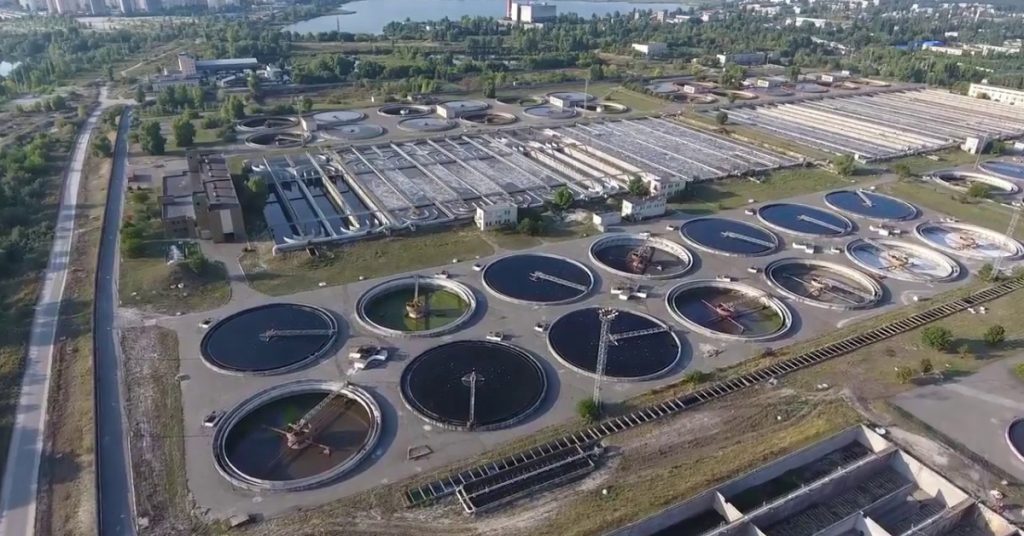Overview
The process of removing toxins, pollutants, and contaminants from sewage in order to produce clean water. This can be reused for environmental purposes is known as sewage treatment. It is critical to environmental preservation. As a result, we must understand the benefits and drawbacks of installing sewage treatment plants.
A sewage treatment plant is an example of a township’s ongoing development. It is both an unmistakable indicator of civilization’s progress and a fundamental infrastructure. When used correctly, the plant can help to improve people’s lives while also protecting the environment. A sewage water treatment plant is essential in the process of removing contaminants from sewage and preparing it for reuse in the environment. Many gallons of water is using for domestic purposes in a township.
Because it contains a high concentration of bacteria, this wastewater cannot be simply discharging into the environment. It may be hazardous to one’s health.
Benefits of Installing STP in Townships
The sewage project, for which significant public and social resources are being using, forms an essential infrastructure for the country and an unmistakable indicator of civilization and development. They address a wide range of significant social needs, with the goal of improving people’s quality of life while also protecting public health and the environment. Some of the benefits and advantages of the sewerage system are as follows:
Improving One’s Quality of Life:
The system’s operation has already improved the quality of life and hygienic conditions in the areas where it operates. The sewage system’s operation has greatly relieved these areas of previous problems caused by the constant emptying of septic tanks. In addition, they provide a healthier and more appropriate method of disposing of liquid waste.
Self-sustaining:
Because the township houses a large number of people, the treated water can be reuse for toilet flushing. TOne of the most important domestic uses of water is this, along with other common domestic uses mainly watering plants and cleaning the floor. In addition, if the water has been treating to meet drinking water standards, it can also be consuming. As a result, the township can be self-sufficient in terms of water needs for sewage treatment.
Reducing waste:
The amount of waste releasing into the environment is significantly reducing thanks to wastewater treatment, which improves the health of the environment. As a result, the health risks associating with environmental pollution are reducing. Moreover, they can help the nearby water bodies remain uncontaminated.
Producing Fertilizer:
A significant amount of biodegradable material is present in the sludge collecting during the treatment process.This sludge produces a natural biodegradable fertiliser when treated in a sludge-drying lagoon. This natural fertiliser can then be use to increase crop yields in gardens and for home gardening. Furthermore, the sludge generating during the STP process can be use to create energy.
Conservation of the natural environment:
Early, all sewage waste was dumped into septic tanks and cesspits. This could pollute the groundwater in areas where such waste has been discharged. Polluted waters eventually ended up in the sea, where they caused a variety of risks and other environmental issues. The operation of the sewage system has resulted in no more groundwater pollution. Moreover, they also resulted in a significant reduction in sewage waste discharge in the area.
Water conservation and processing:
Water is a significant natural resource for our country, and it should be managed as efficiently as possible. The wastewater treatment plant’s tertiary treated effluent is recycled for agricultural and other uses. The amount of water saved is expected to be greater than 10 million cubic meters per year.
Tourism and economic growth:
The system’s most significant advantage is its ability to maintain long-term development. Furthermore, environmental protection and quality of life improvement in our town, with a subsequent impact on tourism and the economy, is a must.
Flooding occurrences:
The construction of effective stormwater drainage systems reduce the social and financial consequences of flooding-related property damage. They also mitigate any indirect damage caused by traffic congestion and make it easier for pedestrians. Furthermore, uncontrolled flooding and surface water flow cause nuisance and public health issues.
Living standards:
STP contributes to the town’s future development and raises its standard of living. Considering all of the benefits listed above, there is no doubt that if we all work together, we will have a better quality of life in the years to come. A life that will ensure a better environment for future generations.
Bottom Line
Many people are unaware that the wastewater treatment industry exists. Based on the preceding points, we can conclude that sewage treatment plants are critical to the functioning of a city or town. If you do not treat water waste before discharging it into rivers and other bodies of water, you may face serious consequences. So, installing an STP plant in large societies and townships can genuinely help conserve water and produce energy and be self-sustaining. Jateen Trading Co is one of India’s leading chemical suppliers and a reputable industry for wastewater treatment plants and maintenance. Check out our website right now to learn more about us! Please contact us right away if you require assistance with the operation and maintenance of your sewage/wastewater treatment plants.
Do you find this article interesting? Then please visit the rest of the blogs as well. We’re confident you’ll find them interesting and useful as well.


